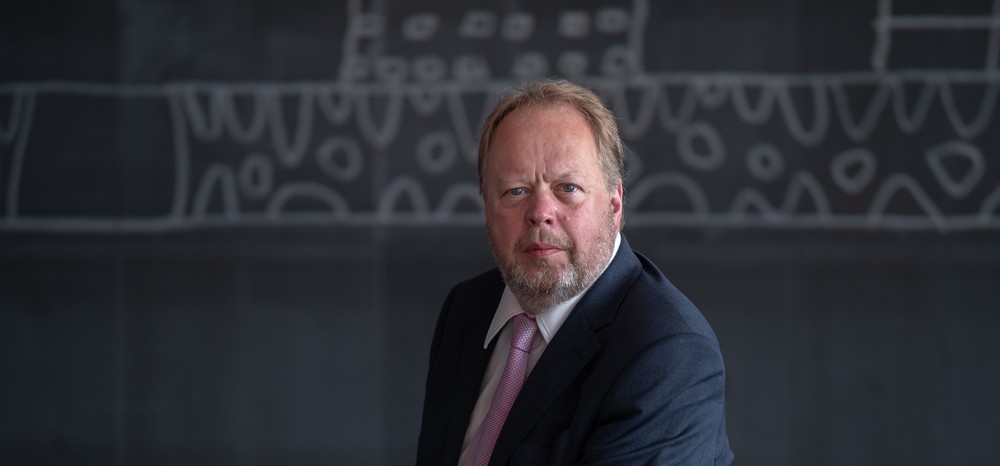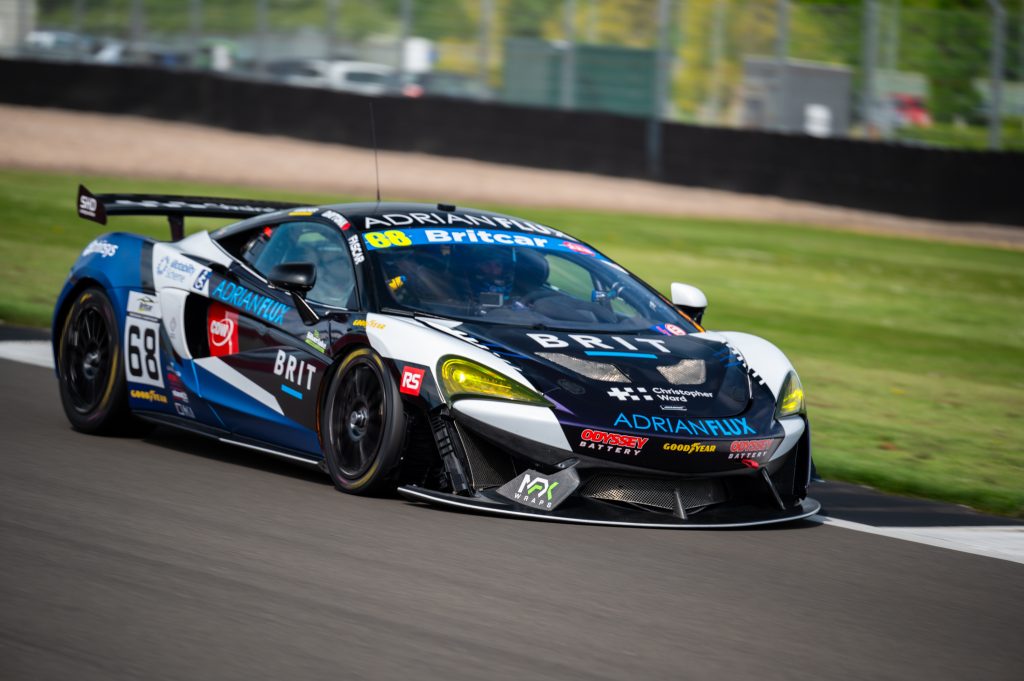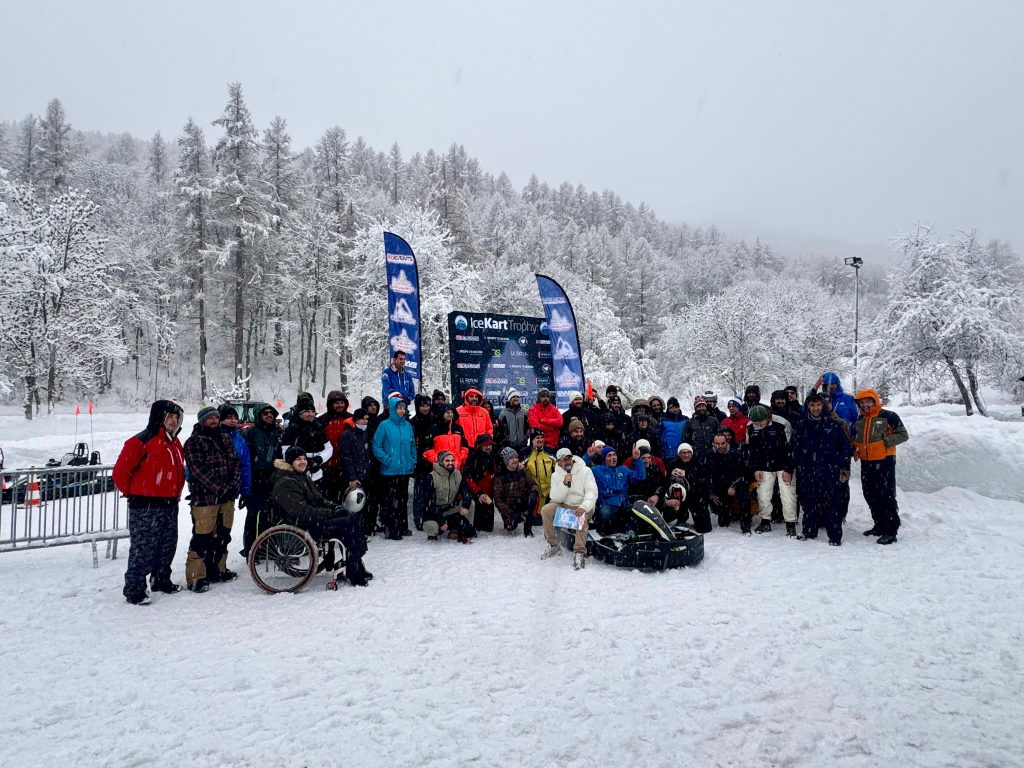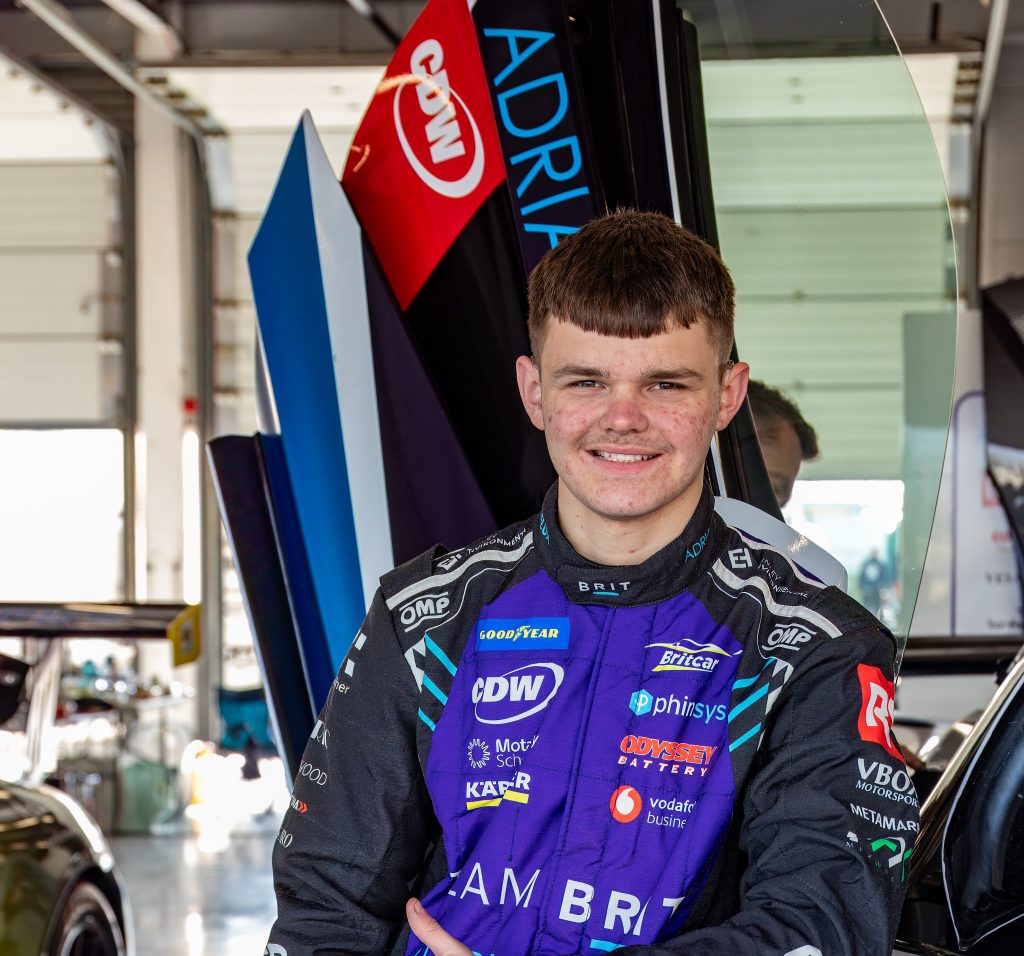Former COO of Nissan and former CEO of Aston Martin Dr Andy Palmer CMG has joined all-disabled Team BRIT as team ambassador, and says its aim to enter the Le Mans 24 hour as the first ever all-disabled team, could finally ensure that racing becomes a ‘levelling sport’.
In a role that includes liaison with the ACO to pledge his belief and support in the team’s aims, Palmer will support Team BRIT through sponsorship advice, introductions and guidance as it moves towards its history-making goal.
Dr Andy Palmer CMG is an automotive executive with more than 42 years’ experience in the industry, having been COO of Nissan and more recently, CEO of Aston Martin Lagonda. He is now Executive VC and CEO at SWITCH Mobility Ltd and an entrepreneur in the automotive net zero carbon movement with Chairmanship of Inobat, Hilo and SID with PodPoint.
Dr Palmer has worked to support inclusion in the automotive industry throughout his career. In 2021 he received the ‘Men as Allies’ award by the Women’s Engineering Society and has founded a charitable foundation to fund apprenticeships for young people from disadvantaged backgrounds.
“Historically, the industry has been behind on addressing diversity” he says, “but it’s not always been a conscious act. In my mind, the reasons for moving towards inclusion aren’t anything to do with being politically correct or ‘woke’, it’s actually a business advantage. From a manufacturing perspective, 50% of cars or more are bought by women, for example, and the stats around purchasing fit with the wider demographics of society. Why wouldn’t we include women and people from all under-represented groups in our development work?
“Inclusion and diversity isn’t just a ‘nice to have’, it makes better products and better companies.”
Engineering for disabled drivers isn’t a new topic for Palmer, who’s engineering credentials include the development of accessible taxis. He’s now had a full tour of the Team BRIT HQ and seen first-hand the hand controls which the team has developed over time, based on direct feedback from drivers.
“When I worked on the development of New York and Tokyo taxis that would be wheelchair accessible, I understood that I had to come at it from the ground up. You have to understand the challenges from the very beginning, so I worked with disabled people from the start to help me understand. I did the same when working on the Aston Martin DBX, forming a female advisory board to feed in their input. I’ll never be a woman so cannot fully understand a female perspective, and sitting in a wheelchair doesn’t mean I can understand the reality of a disabled body.”
Palmer has extensive experience in racing, which began with his management of ‘Nismo’, Nissan’s motorsport team with a tagline of ‘the innovation that excites.’ This pursuit of improvement through technology is something that he believes is at the heart of the sport.
“From the creation of ‘ZEOD’ which was the first car to compete a fully electric lap at Le Mans via Garage 56 to Aston Martin Championship wins in GTE class in 2014, 2017 and 2020, it’s all about pushing the edges of technology and innovating to move the species on. By nature, technical innovation is exciting and that’s what interested me in Team BRIT.
“With the team’s innovation, disabled drivers can be as competitive as able-bodied drivers, if not more so, by removing the barriers to entry and that’s what I think is really interesting.
“Could a disabled person be the next F1 star? Yes, if they’re good enough. Racing is predominantly about spatial awareness and reaction speed. Having no legs or no use of your legs shouldn’t matter if you have the brain to distil the information. You shouldn’t make excuses for disability, you need to innovate to have no disadvantage and to help realise potential.”
It’s this experience and influence across the sector that Palmer now hopes will help the team with its move forward towards the Le Mans goal. One of the main hurdles to overcome will be the millions required in funding to get to the start line, but Palmer believes the team has an incredible advantage in the fight for sponsorship.
“It’s a money sport, but the team can and must use its perceived ‘disadvantage’ as its advantage. More and more people and businesses want to be seen to be doing the right thing and here is an opportunity which is clearly just that. It’s become harder to secure sponsorship as you need to demonstrate how you’re helping awareness of a brand, and being on the side of a car is no longer enough. With Team BRIT, we have an advantage, something that differentiates us.”
He explains, “One of the reasons I’m helping Team Founder Dave Player with his communication with the ACO is because I truly believe that having a confirmed entry to Le Mans will be a true showcase for the sport, demonstrating where disabled drivers can compete equally. Dave doesn’t want a Garage 56 entry and I agree with this, as this is not a level playing field. We can go out there and demonstrate that whether it’s someone who is paraplegic or autistic, there is no unfair advantage, it is equal. Getting that entry won’t be easy but I’m up for the fight, and we’ll get there.”
‘Getting there’ will make history – no other all-disabled team has raced at Le Mans, and for Palmer, this could be pivotal for the industry.
Palmer comments, “We need to get to the day when the big teams are complaining that the hand controls are giving us an unfair advantage. That’s the day you have to look forward to. Thankfully, we’re seeing more disabled athletes becoming well known in their own right, through championships such as the Paralympics, but I think that competing at the greatest race in the world, in one of the few events where disabled athletes and able-bodied athletes could compete against each other is a real levelling. For the first time, rather than being elitist, racing could become that levelling sport.”
Team BRIT’s drivers will compete in the British GT Championship, the British Endurance Championship and the Britcar Trophy Championship this year.

- Sponsor


